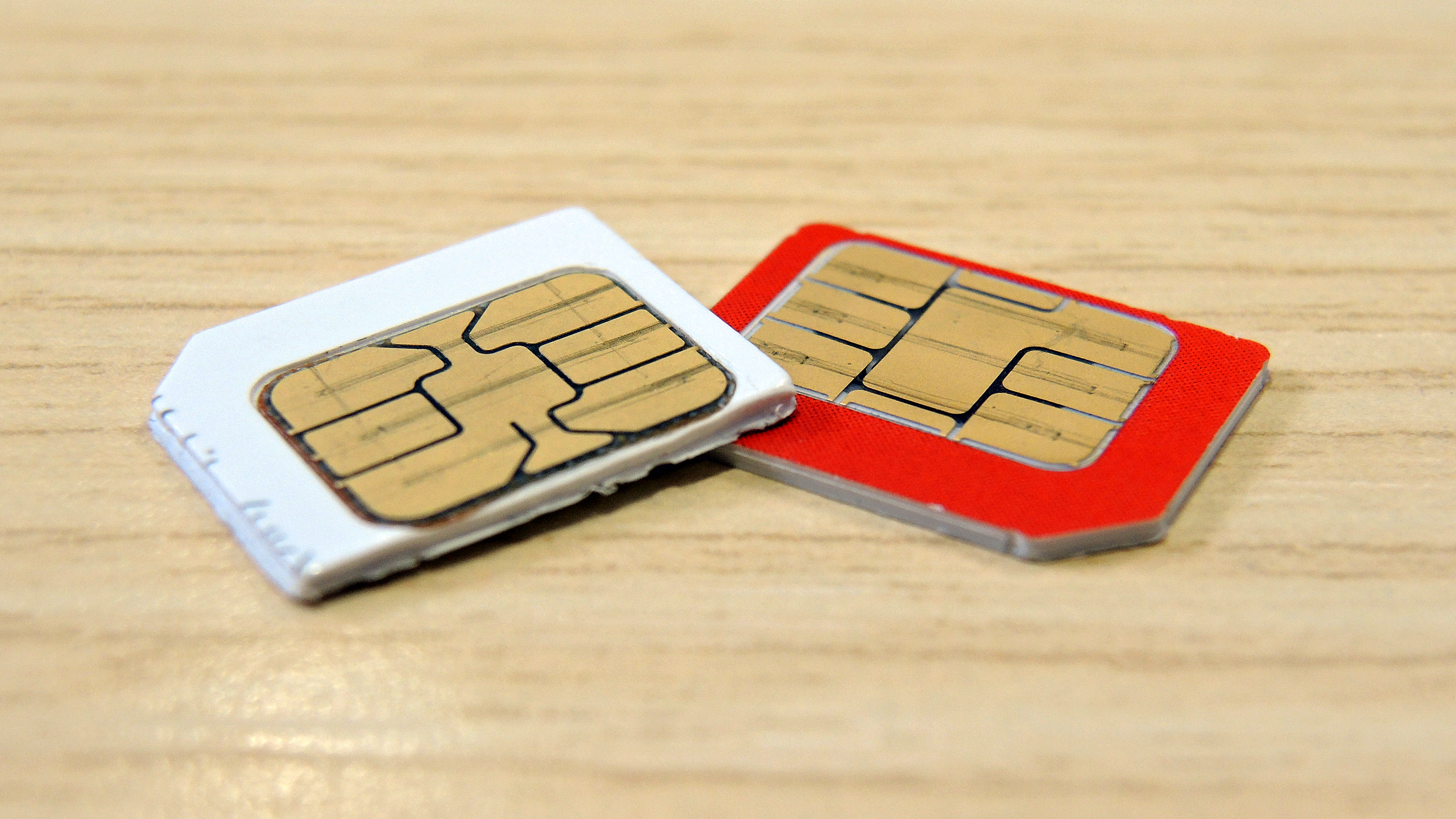Future iPhones, Galaxies may mark the end of SIM cards as we know them
It could happen next year

What's the future for smartphones? Handsets that don't require physical SIM cards, according to a new report.
The Financial Times is reporting that Apple and Samsung are in "advanced talks" with major telecommunication companies and GSMA, the industry association that represents mobile operators, to standardize e-SIMs.
E-SIM technology allows for embedded SIM chips that don't lock users to one particular network carrier, unlike the traditional SIM cards used today.
It would mean that any phone, tablet or other gadgets that can be connected to a network via an e-SIM will be able work with any carrier that supports the new SIM technology.
A new kind of SIM
According to the report, AT&T, Deutsche Telekom, Etisalat, Hutchison Whampoa, Orange, Telefónica and Vodafone are some of the networks around the world that are expected to support the new technology.
It's unknown if other phone-makers are in talks with GSMA as well, and nothing is set in stone yet as the technical specifications of the new e-SIM architecture is yet to be finalized.
And even if GSMA is successful in standardizing a common architecture for the e-SIMs, it could take up to a year or more for it to become a feature on phones.
Get daily insight, inspiration and deals in your inbox
Sign up for breaking news, reviews, opinion, top tech deals, and more.
"With the majority of operators on board, the plan is to finalize the technical architecture that will be used in the development of an end-to-end remote SIM solution for consumer devices, with delivery anticipated by 2016," Anne Bouverot, chief executive of the GSMA, told the Financial Times.
- Apple had a similar idea for SIMs a couple of years ago for the iPhone 5